About
I provide a great educational experience because I still think of myself as a student. I don't just have a pile of the same book to give to each new student. I listen to what the student wants to play and together we work on the aspects of music that are necessary to meet the student's goals. I teach classical, blues, improvisation, pop/rock, etc.
I wrote a book for Alfred Publishing called Beginning Piano for Adults. It is available at all online retailers.
I enjoy interacting with my students. I enjoy figuring out how my students' brains work to figure out the easiest way to communicate information to them. I enjoy being invited to watch their talent shows at school and telling them how wonderful they were. I enjoy being invited to 7-year-olds bithday parties. I enjoy the drawings and cards hanging on my fridge. But mostly, I love making music together.
Highlights
Payment methods
Specialties
Years experience
Able to read music
Lesson length
Student's age
Student has instrument
Interested musical styles
Photos and videos
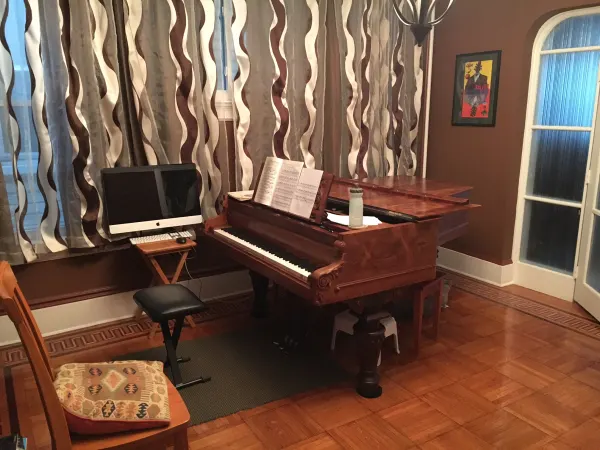
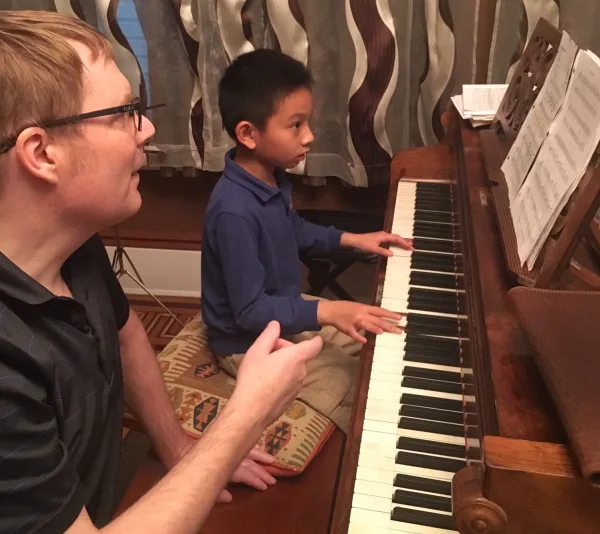
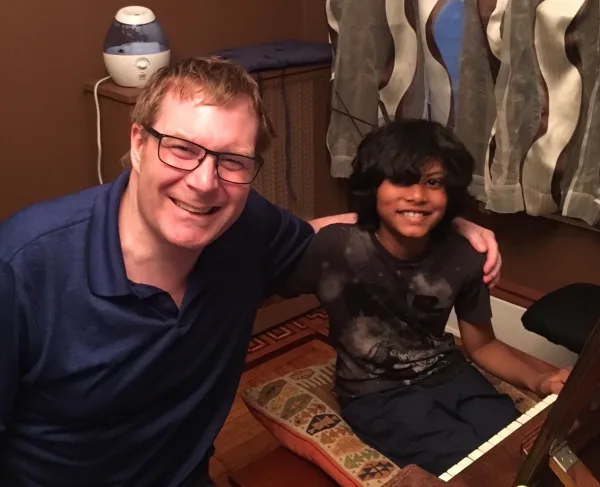
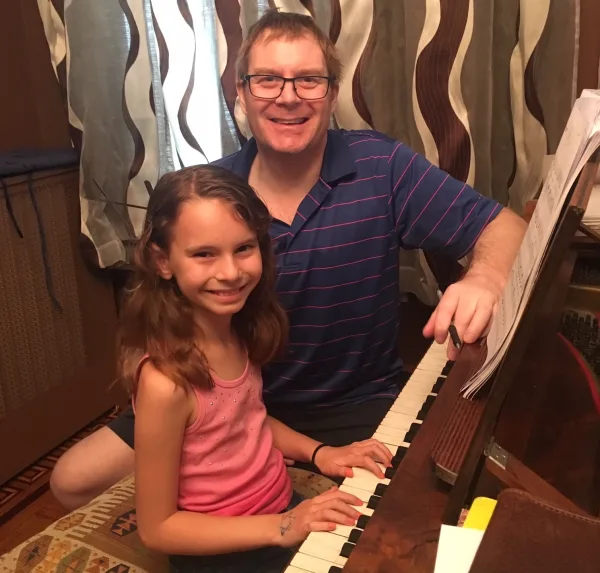
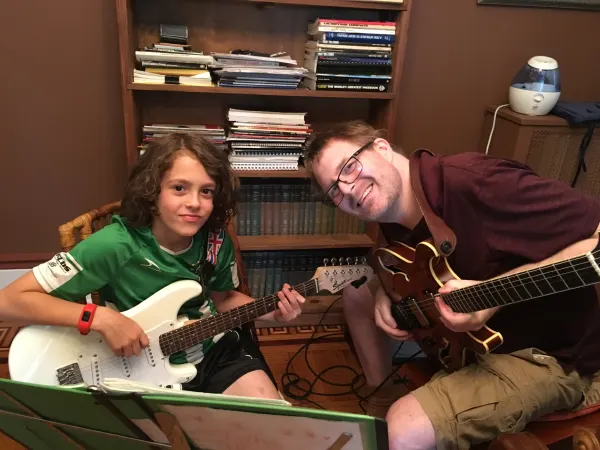

Reviews
Ahmed M.
Jennifer S.
Jessiah
Tarun
CB
Haywood T.
Frequently asked questions
What is your typical process for working with a new student?
First, I go through a couple of things at their level that they are working on or, if they are a brand new student, I introduce them to the instument and give them a couple of exercises and a couple of easy tunes to practice. My goal is for me to determine as quickly as possible whether that student learns best aurally (via the ears), visually (via the eyes) or tactilely (via the hands). Then we go from there and I will focus on their strength and start our musical journey.
What education and/or training do you have that relates to your work?
I have a BA in Music from Rutgers University, but the best training I have is simply having done it for most of three decades. School doesn't train you how to extract a five-year-old from under the piano or help someone get rid of perfectionism so they don't think every time they make a mistake it's the end of the world. And my special needs students have taught me so much about explaining things in different ways.
Do you have a standard pricing system for your lessons? If so, please share the details here.
I charge $45 per 30 minutes, $67.5 per 45 minutes and $85 for 60 minutes. As long as the student gives me reasonable notice, I do not charge for missed lessons. I send out an email at the end of the month which includes the invoice for the month and any news that is pertinent. I accept payment via cash, check, PayPal, Venmo, etc.
How did you get started teaching?
A friend of mine in college asked me if I could show him how to play "Purple Rain" by Prince. I said sure, he came over, and I showed him. He called me the next day and said he practiced it for three hours after he got home and that I was an awesome teacher. Then he said he wanted to give me ten dollars. I had a great time sitting at the piano with him and I realized that I could make this my career.
What types of students have you worked with?
I have worked with students ranging in age from three to late seventies. I have worked with kids who have ADD, Cerebral Palsy, four students on the autism spectrum and one blind student. I currently work with one young man who has cerebral palsy. I have worked with students who need a pat on the back and students who need a kick in the rear. In short, If I haven't seen them all, I've seen most of them.
Describe a recent event you are fond of.
About six months ago I was in the hospital for a week and I missed about of month of lessons. When I got home from the hospital, there were a few cards waiting for me from students who had dropped them off while I was away. It touched me that the kids (or their parents) thought to make such a kind gesture. One card said "This week was our science project and I made a volcano and I also practiced my D scale. I hope you get better soon. Love, (student).”
What advice would you give a student looking to hire a teacher in your area of expertise?
I teach piano, guitar and ukulele. I have made the bulk of my living over the past three decades doing this, and have met a lot of teachers, some good, some not so good. Not so good means a teacher who gives someone a bad feeling about themselves, or their instrument, or music in general. I have had a bunch of younger students whose parents will say something like, "Oh, I studied piano when I was younger, but I always hated it because the teacher was this grouchy old man who would always yell at me and make me play terribly boring music and smack my fingers with a ruler," or something similar.
Looking for a music teacher is a difficult process. You're entrusting the development of a creative part of you (or your child, spouse or friend) that you may be embracing for the first time to a complete stranger.
Make a list of potential teachers and call them. Ask them their philosophy about teaching and inquire about what type of music you'd like to learn to play.
At the end of a successful music lesson, you should have three pieces of knowledge:
1. You should know exactly where you are, in terms of your musical progress: "I know my D major scale, but since this Bach piece is in E, I need to spend some time working on my E major scale to get comfortable with that key."
2. You should know exactly what your goals are, both for the next lesson, as well as longer term: "I want to learn the 3rd through 5th position pentatonic minor fingerings, because I want to be Jimi Hendrix when I grow up."
3. You should know how to get there. Explaining things is very important. That is why the musicians who are less talented but worked harder to get to a certain level are often more effective teachers than prodigies. I am in the former category, and have hit every snag a musician can hit along the way, so I know how to explain how to get unsnagged.
Good luck!
What questions should students think through before talking to teachers about their needs?
Please see my answer to the question above.